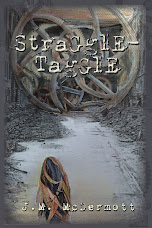The Tower of Babel Crumbles As It Is Being Built
Pondering aimlessly on a prior post I wrote dedicated to "southern" fiction, wherein I decide that dealing with the original sins of a place, time, or culture are central to the defining aspect of whether that work of fiction can be categorized as "being" a work definitive to the place, linked here, I would like to turn my eye to science fiction, which I have been writing too much of late. Fiction is defined by conflicts. Every work of fiction has one, of which I am aware. And, fiction, by its nature, is also a systemic redefinition of places known already. The signifiers in fiction, words, ideas, places, etc., all exist together accumulated to be a reflection of reflections of the real world. Without realism, there is no fiction. And, in the real world, there are conflicts. Countries push against each other jockeying over resources real and imaginary. Neighborhoods make rules for neighborhoods. Households bicker. People suffer. People die. Conflict everywhere, always. Even in the future, science fiction is conflict. Asimov wrote of a house continuing on after the early demise of the owners in some nuclear apocalypse, but the house, itself, pushes against the chaos of time until winding down, in the end, to a kind of demise. Conflict, always conflict, people pushing against each other, against the order of the world, against the order of nature, and even against their own better/worse selves. In our times, with the fragmentary nature of influences rightfully scattering across genres, I don't necessarily want to pull the clouds of confusion away from the nature of things. I like the cloudy, ambiguous piles of books, each presuming to be exactly what it is meant to be. But, I can see a way of looking at what I'm writing, and knowing where it ought to be sent, that seems useful enough to mention. Sin is the center of the genre. Conflicts are moments of pain, moments of sin and suffering. Sin is the heart of fiction, and the recognition of society's sins, people's sins, and even the sins of a faceless deity upon our flesh and soul. The work that describes itself as science fictional deals in the sins that come to us wrapped in a gauze science. A work of literature, then, where a piece of technology is possible that changes the world is only mildly consistent with science fiction, as a genre, if such a thing exposes the sin at the center of the beating, guilty heart of the act of science itself. Occasionally, in hard science stories that are as hard as they come, the sin that is revealed is the sin of science, as an act. To presume to see the world as mere observor is a prideful thing, and an impossibility. We cannot ever achieve the necessary distance to be pure of the corruption of our own delusions. When the science gets hard, the people suffer, and it is the central sins of science - pride of self, jealousy of god, fear of the unknown Other beyond the known and accepted, annihilation of true self in the face of a machinery - that lead down the path towards such sins that translate into conflict. Writers are the whistlers of sinful songs. We are the jesters and puppeteers of fables. We see a little farther into the nature of things, even as we fail ourselves to our own self-blindness. No one sees the horizon spreading out forever. We just struggle to see a little more, is all. What makes us science fictionists? We've climbed up the tower where it is still being built, and we look up and imagine it a little farther on. We see all the whipping of slaves, the heavy work of carrying rocks higher up the walls, the sweat and blood and futility of doing all this - all this - for the sake of a larger tower. Maybe it is a brighter future we see, closer to the sun, where the laborers may rest. Maybe it is a crook in the stairs that will be hard for everyone to cross without falling. See whatever you see. Name it as you see it. The conflict, though, always, and the tower will crumble if we don't keep looking out ahead, imagining buttresses, steam-valves, and breakpoints and shouting at everyone to see what we see. Look there, and build carefully! For soon we all perish. Science fiction is the folly of climbing the tower. The timelessness never comes, because to look up at what might be is to lose the possibility when stone stands upon stone. Our work is lost as soon as the next month rolls over and new releases arrive. New magazines push away the old ones. New books push out the old ones on the shelves. Everyone pointing up, and that is us. We scream about the tower being built, in the middle of construction. It crumbles from the foundations, from below. Every tower will crumble into sand, and begins to fall the moment the first stone is placed upon another stone. When we build another one, after this one, we will point to the ruins and claim to know better this time. I think of this, and I write science fiction, and I am nearly done with it, for now, for other things that feel less temporary, and less futile, than shouting at rocks and sand.














No comments:
Post a Comment